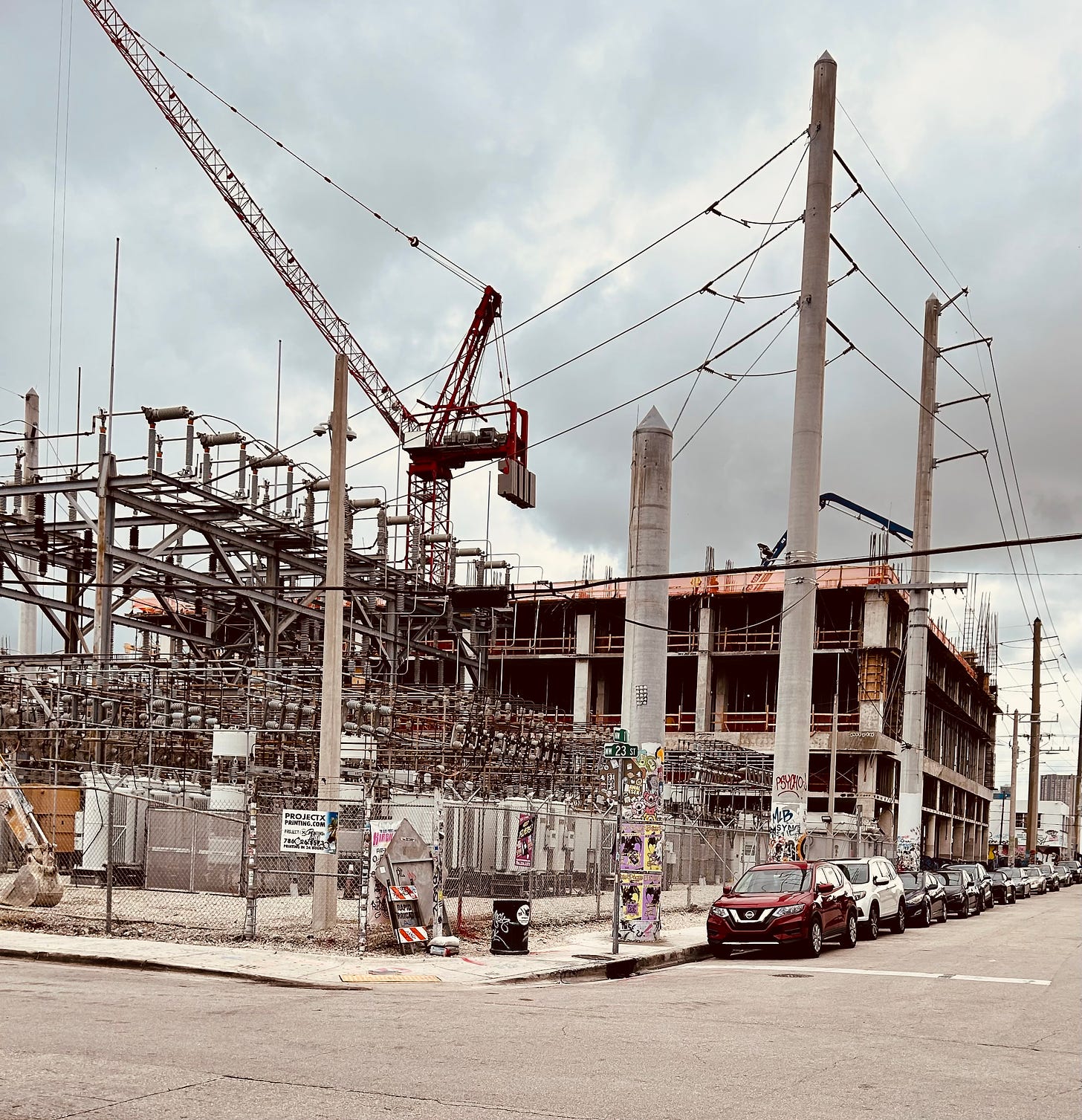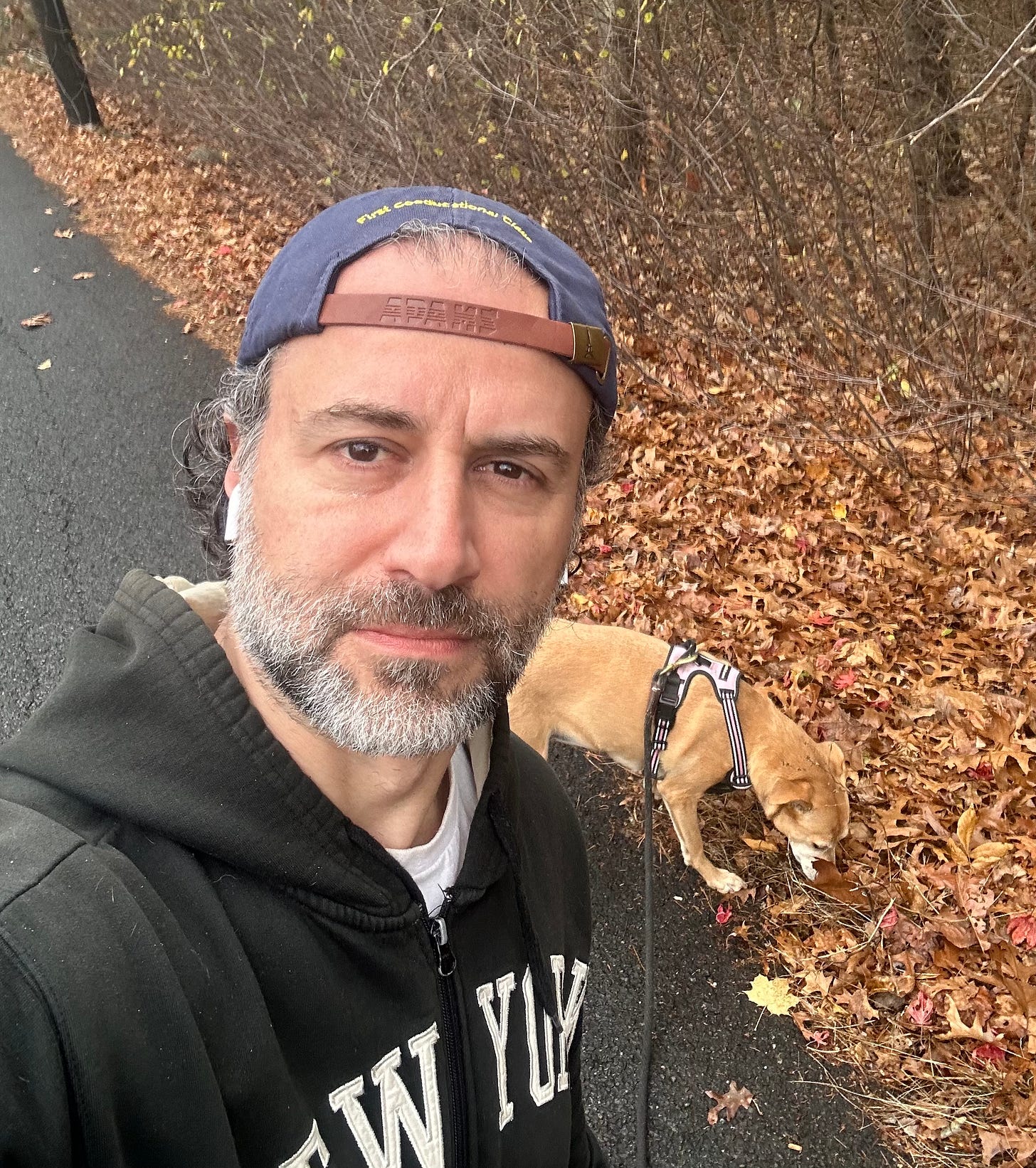What It Means to "Trust the Process"
Not the political process, but the process of creating and preserving knowledge
I’ve been thinking a lot about the phrase “Trust the Process.”
Basketball fans recognize it as the motto of the Philadelphia 76ers. Great congruity, right? A team named for the founding date of American democracy is the sports world’s champion of “process.”
And that’s certainly one reason why I keep hearing these words echoing in my head.
We just watched the democratic process at work again. And it did work, in its way. The people chose their government, fairish and squarish (setting aside, for the moment, the multitude of ways in which minority votes are routinely suppressed). And those of us who did not get the government we want have to go back to the drawing board—or, perhaps, to a blank slate.
But that’s only one particular process, and a narrow one at that.
Today I’m interested in a bigger-picture process.
The phrase “Trust the Process” originally referred to the need for commitment and persistence over immediate gratification. In sports, not politics.
In its original context, the phrase was a reminder, to a basketball team, that it could not cut corners and still win a championship. It was a reminder that the entire team had to make tough decisions, and stay disciplined, and do a million boring and potentially unpopular things, and do them all well, and stick to the plan in the face of adversity, before it achieved its ultimate goal.
That’s The Process.
In a lot of ways, that process has been my life.
It was my life when I played basketball as a kid and spent hours alone in my backyard, dribbling around lawn chairs. It was my life as a scholar when I was wandering the bowels of Boston’s libraries, searching for rare books about obscure, nineteenth-century American philosophers—books no one but me had ever read before. (I mean this literally. I used to carry a penknife with me, so I could cut the brittle pages open for the first time.)
And it is my life as a writer now.
Sexy, huh?
There are no shortcuts between a blank screen and this little blog post. I have to do my research, and think through every word, and type every letter and punctuation mark, and rewrite, and edit…every step a little bit of drudgery, and a little discovery too.
Science works this way too, as big discoveries follow hundreds of hours of mind-numbing detail- and precision-work, and false starts, and testing, and debate among dozens of individual researchers, and peer review, and lots of trial and error. We call it “the scientific method.”
In fact, all knowledge is method. All knowledge is never-ending process. Not just “elite” knowledge but all knowledge and every trade.
The only people who experience anything like immediate gratification in this world are the ones wealthy enough to buy it. (And even they can’t buy their own skills, or abilities, or discipline, or facts, or their own ideas.)
Everyone else grinds.
If you observe The Process—any process—in the middle of the grind, it can seem absurd.
You might see a basketball player miss dozens of shots as she adjusts her shooting form.
Or a writer obsess over a single sentence for an entire afternoon, only to realize that the idea it expresses is a tired cliché.
Or a scientist in a laboratory studying the digestive habits of the banana slug, looking for a single clue to some heretofore hidden phenomenon that may or may not be a key to a future medical discovery. (I may have made up that example…but I don’t think so.)
Each of these things, if we trust the process, can be a step toward progress.
Now…I’m not suggesting that we should have infinite patience with every process. We should have NO patience when people are sick and suffering and wounded and dying, for example.
And I’m not sitting on my hands, patiently waiting to see if the winners of this year’s election will govern equitably. I don’t trust them, or our political process, or corporate power, enough for that. I’m already trying to preserve what should not be lost—like The Process.
But nothing of value comes easily.
Knowledge and expertise are not acquired with corporate efficiency. (Hell. Corporate knowledge and expertise are not acquired with corporate efficiency.)
And we should have a little humility when judging good people in the middle of their process, especially if we don’t have the experience required to understand every step.
Again, I’m not saying we always need to stay in our lanes. Good citizens should have strong opinions and a breadth of knowledge, and a healthy democracy is a forum for nonviolent conflict.
I am saying, however, that we should always question our own motives first—We’re so quick to ridicule what we don’t understand!—and our opinions should be as well-informed as we can make them.
All of us should be accountable for the work we do. But it’s lazy and irresponsible and self-defeating to condemn good people in the middle of their process…as too many politicians do when they don’t like what the experts tell them, or when they’re looking to score cheap points with an angry electorate.
Impatience and impulsivity are features of childhood. And the demonization of expertise is a feature of fascism. And the combination of the two—childish fascism—can destroy everything we’ve achieved in this country, if we’re not careful.
It’s time to be adults again, to trust processes other than our own again…by which I mean that we have to learn to trust The Process again, for our own safety, wellness, and survival—however slow, and boring, and inconvenient, and “elitist” that may sound.
Since none of us can know everything, but each of us can know a few things, we really have no choice. We have to trust each other at some point.
Be True, Episode 66: We’re Finally On Our Own
John reads a section of his poem “For a minute there, it seemed like something was happening.” He discusses the importance of “useless” poems, the poverty of corporate values, and the Beatitudes.
Sweating after Seamus Heaney Wonder was not in our grandfathers’ nature, to sit in a window alone and stare. They huddled close together, sharpened stones, tended real fire— or learned, like my own, to master copper, acetylene to melt the wire around a joint and tighten a seal that time would soon weaken. The old man practiced his trade with pride but suffered no sentiment, told no legends of pliers, wrenches, augurs—and Jesus Christ Almighty if the metal bit his fingers. He wedged his shoulders in narrow corners, his thumb a dyke, his dam back broken, until the years had stolen his mind and left behind the ghosts of his labor, a city map of absence: the miles of lead replaced with plastic, the iron boilers sold for scrap, the fittings he hoarded in buckets, brass like bullion—like gold to a grandson—pinched by an apprentice who bartered for penance, a liquid solace. Our task, we pen-men, is permanence, to bury a shovel in the garden, its heft a treasure for diggers, to trace the water in palimpsest so someone will remember. (Originally published in Sometimes I Still Pray.)







Trust and respect , we can all contribute , each in our own small way .
This resonates with me. Thank you for thinking about it and writing about it. :-)